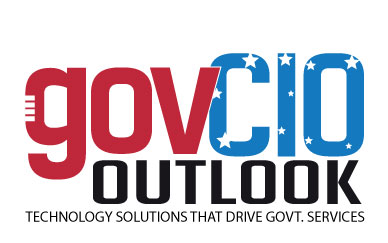DECEMBER 2023 19GOVERNMENT CIO OUTLOOKDigital transformation is not just about implementing new technologies but also about changing how people work and think and focusing on citizen satisfactionapplications. They can also collaborate with non-profits and community organizations to improve citizen engagement and outreach.Technology plays a critical role in the modernization and digitization of local government services. Governments need to leverage technology to automate and streamline processes, improve data management and analytics, and provide citizens with online access to government data and services. However, the focus should not be on technology for its own sake but on how technology can be used to better serve citizens.Successful digitization requires a `systems thinking' approach to digital transformation. This means considering the entire system of people, processes, and technology that are impacted by the modernization effort. Another challenge local government faces is the lack of understanding of their citizens' needs and expectations. Local governments need to conduct research and engage with their citizens to understand their needs and expectations. They can use various tools, such as surveys, focus groups, and social media, to gather feedback and insights. Local governments need to be aware of the digital divide that exists in society. Not all citizens have access to digital technology or the skills to use it effectively. Local governments need to ensure that their modernization efforts do not leave any section of society behind. They can do this by providing training and support to citizens who need it and by offering alternative channels for accessing services.Increased efficiency is one of the most significant benefits of digitizing local government services. Digital technology can automate many processes, reducing the time and resources needed to complete tasks. This, in turn, can lead to cost savings for local governments. However, local governments need to be careful not to sacrifice quality for efficiency. As Simon Sinek, author and thought leader, has said, `Quality is not an act, it is a habit.' Local governments need to ensure that the services they provide digitally are of the same quality as those provided in person. Digital technology can improve citizen satisfaction with local government services. Citizens expect convenience and ease of use when interacting with services, and digital technology can provide this. For example, citizens can access services online, anytime, from anywhere, without needing to visit government offices. This can lead to increased citizen engagement and participation in local government activities.The book `The Phoenix Project,' a personal favorite, highlights the importance of a holistic approach to digital transformation. Local governments need to consider all aspects of their operations when implementing digital technology. This includes people, processes, and technology. They need to ensure that their staff are trained and equipped to use the technology effectively. They need to streamline processes to ensure that they are optimized for digital technology, and they need to select the right technology solutions that meet their specific needs. One of the key lessons from "The Phoenix Project" is the importance of collaboration between different departments. In local governments, departments such as IT, finance, and administration must work together to modernize and digitize services. This collaboration requires a change in mindset, where departments must work towards a common goal rather than pursuing their individual goals. This intradepartmental process review can net opportunities for automation as well. Local governments can free up time and resources to focus on more important tasks by automating routine tasks. Automation can also improve the accuracy and consistency of services, which can lead to increased citizen satisfaction. To keep pace with technology, local governments must invest in their IT infrastructure and talent. This investment requires a long-term mindset, where local governments must plan for the future rather than focus on reacting to current needs. By investing in their IT infrastructure and talent, local governments can ensure that they are able to meet the demands of the modern world. Digital transformation is not just about implementing new technologies but also about changing how people work and think and focusing on citizen satisfaction.
< Page 9 | Page 11 >
< Page 9 | Page 11 >
